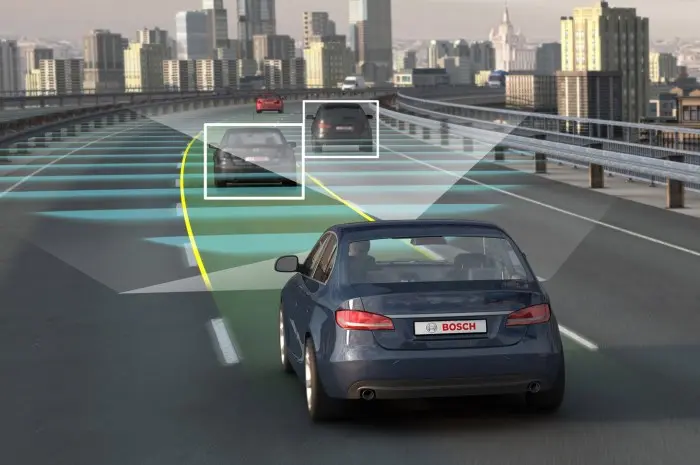18 Emerging Technologies for the Cars of the Future
The automotive industry is experiencing a transformative era, driven by technological advancements that promise to reshape the way we perceive and interact with vehicles.
As we look ahead to the future, we can’t help but be excited about the innovative technologies that are poised to revolutionize the cars we drive. From electrification to autonomous driving, here are 18 emerging technologies that will define the cars of the future.
The automotive landscape is undergoing a rapid evolution, fueled by a wave of emerging technologies that promise to redefine transportation as we know it. From environmental concerns to safety improvements, the cars of the future are set to offer a host of benefits that extend far beyond conventional driving.
Electric Propulsion
Electric vehicles (EVs) have taken center stage as one of the most significant advancements in the automotive industry. With zero emissions and increasingly impressive ranges, EVs are poised to replace traditional internal combustion engines and reduce our carbon footprint.
Autonomous Driving
The dream of self-driving cars is becoming a reality, thanks to advancements in sensor technology, machine learning, and AI. Autonomous vehicles have the potential to enhance road safety, reduce traffic congestion, and provide newfound mobility to those unable to drive.
Augmented Reality Dashboards
Traditional dashboards are evolving into interactive displays that blend the physical and digital worlds. Augmented reality (AR) dashboards can overlay navigation cues, safety alerts, and entertainment options directly onto the driver’s field of view, enhancing situational awareness.
Vehicle-to-Everything (V2X) Communication
V2X communication enables vehicles to exchange data with each other and with surrounding infrastructure. This technology enhances road safety by allowing cars to “talk” to traffic signals, pedestrians, and other vehicles, ultimately preventing accidents and improving traffic flow.
5G Connectivity
The arrival of 5G connectivity promises lightning-fast data speeds and near-instantaneous communication. This is crucial for enabling real-time updates in autonomous vehicles, facilitating vehicle-to-cloud communication, and enhancing the overall driving experience.
Advanced Driver Assistance Systems (ADAS)
ADAS encompasses a range of technologies, from adaptive cruise control to lane departure warnings. These systems provide assistance to drivers, enhancing safety and convenience by helping with tasks such as parking, braking, and lane keeping.
Solid-State Batteries
Solid-state batteries offer higher energy density, faster charging times, and improved safety compared to traditional lithium-ion batteries. As these batteries become more feasible for mass production, EVs will become even more practical and competitive.
Biometric Vehicle Access
Fingerprint scanning, facial recognition, and even retina scans are being employed for secure and personalized vehicle access. These biometric systems eliminate the need for physical keys and provide an added layer of security.
Artificial Intelligence Integration
AI is being integrated into vehicles to enable advanced functionalities such as natural language processing, predictive maintenance, and personalized recommendations. This allows cars to understand and respond to drivers in more intuitive ways.
Sustainable Materials
Car manufacturers are turning to sustainable materials such as recycled plastics, natural fibers, and eco-friendly textiles to reduce the environmental impact of vehicle production. This trend aligns with the growing emphasis on sustainability.
Holographic Displays
Holographic displays are transforming the way information is presented within vehicles. By creating three-dimensional projections, drivers can access crucial data without taking their eyes off the road.
Personalized In-Car Experiences
With the integration of AI and big data, cars can personalize the in-cab experience to individual preferences. From adjusting climate control to selecting entertainment options, vehicles will cater to passengers’ unique needs.
Quantum Computing for Traffic Optimization
Quantum computing has the potential to revolutionize traffic management and route optimization. With its unparalleled processing power, quantum computers can rapidly analyze complex traffic patterns and provide efficient navigation routes.
Cybersecurity Measures
As cars become more connected, cybersecurity becomes paramount. Robust cybersecurity measures are essential to protect vehicles from hacking attempts and ensure the safety of passengers and their data.
Hyperloop Technology
While not exclusively a car technology, hyperloop transportation could revolutionize long-distance travel. By using vacuum tubes to propel pods at incredible speeds, hyperloop technology could dramatically reduce travel times between cities.
3D-Printed Car Components
Additive manufacturing is enabling the creation of intricate car components through 3D printing. This technology offers design flexibility, reduced waste, and faster production times.
Conclusion
The future of automotive technology is incredibly promising, with a wide range of emerging technologies poised to transform the way we drive and interact with vehicles. From electric propulsion to quantum computing, these advancements are not only shaping the cars of the future but also enhancing the overall driving experience in profound ways.



